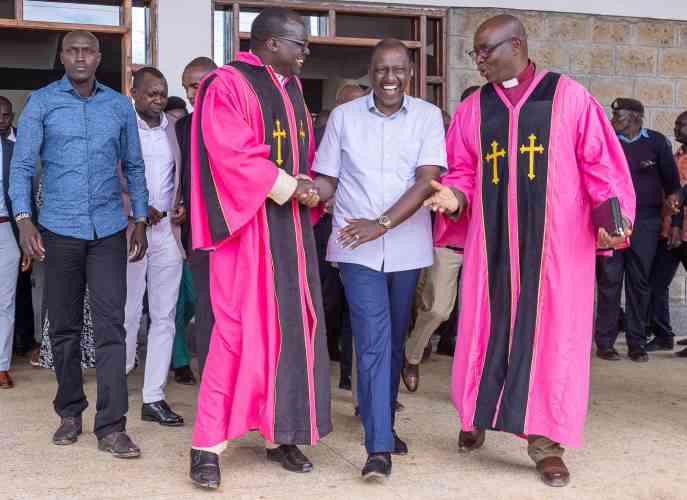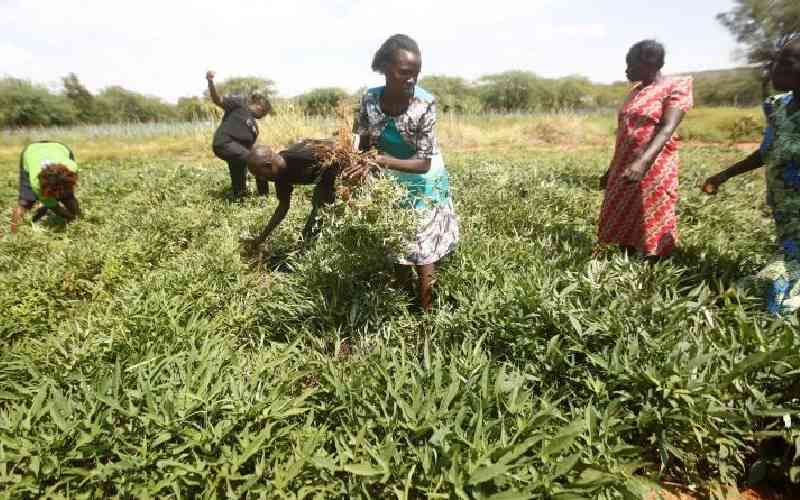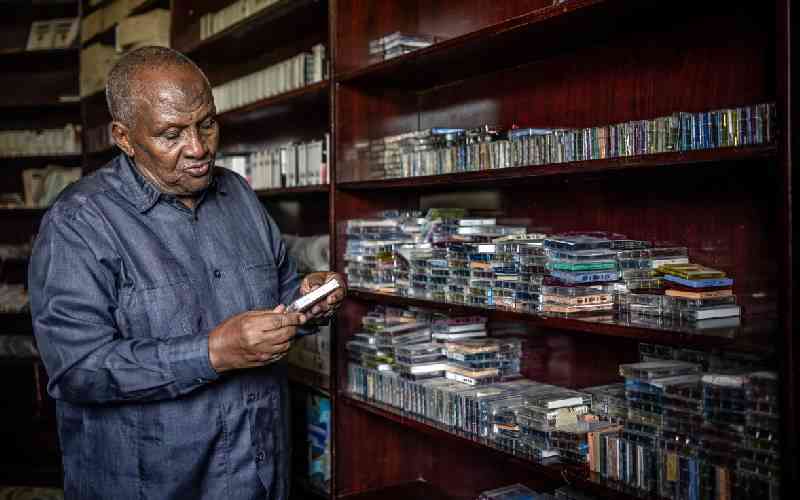For close to six decades, the Catholic Church and a clan in Nyeri have engaged in a vicious tussle over 2,577 acres of land worth an estimated Sh25 billion.
Since 1958, Mbari ya Murathimi has tried and failed to acquire the expansive property which they lay claim over and are accusing the church of taking advantage of the 1952 State of Emergency to grab it from their forebears.
Back and forth
In a classic case of the cross coming before the flag, the community is alleging their ancestors were evicted and their land illegally allotted to the Consolata Catholic Mission.
They have sued the Catholic Diocese of Nyeri, the State and Attorney General, seeking to reclaim the land. The county of Nyeri and State are sued as bearers of the burden of the injustices carried out by the colonial government.
In the years since it was first filed, the matter has stalled, restarted, moved back and forth between courts in Nairobi, Kerugoya and Nyeri and drawn in other bodies like the Ethics and Anti-Corruption Commission (EACC).
The case has evoked memories of injustices suffered during the 1952 state of emergency.
The suit has outlasted the tenure of three Nyeri Archbishops and is now on the in-tray of Archbishop Anthony Muheria, who took over three months ago.
According to the 600 clan members, their land was grabbed between 1952 and 1963 when they were rounded up and driven into concentration camps at the height of the Mau Mau agitation for freedom.
The clan argues that the colonial government forced the title on itself and granted a 999-year lease to Consolata Fathers.
When the Kenyatta government took over after independence, it granted two of the titles to the Consolata Mission without buying the land from the owners.
In documents filed at the Land and Environment Court, John Kiboi Muchemi, a fourth generation Murathimi, says his great grandfather Murathimi wa Maitei owned slightly more than 3,500 acres.
After his demise circa 1900, his son, Chief Nduini Murathimi converted to Christianity and allocated 1,000 acres of the family land to Consolata Missionaries to set up a mission centre.
To demarcate the church land from community land, the missionaries planted trees identified as migorogotha in the local Kikuyu dialect.
“They were no indigenous trees and even now the locals believe that that those trees came from the area where Jesus Christ was crucified, Golgotha, hence the name migorogotha,” Muchemi said. He added: “Before the insurgency period, people used to live in the parcels up to 1954 when they were forced to vacate by the colonial government. During that time, we were not able to access our own land and the missionaries took possession of the other 2,500 acres and left us squatters.”
Stay informed. Subscribe to our newsletter
In the words of former Nyeri Town MP Wanyiri Kihoro, who is part of the legal team representing the villagers, “the camel was given a roof to protect itself from the rain but ended up pushing the owner out and occupying the whole house”.
The parcels in dispute measure 1,089,584 and 904 acres and in the years since, several developments have sprung up.
Christ the King Major Seminary, Sister of Tabitha convent, Mwenji Parish, St Paul’s Minor seminary, Franciscan Sisters, Sisters of Holy Angel Primary School, St Bernadict Academy, Mwenji, Hill Farm Primary School, and St Teresa Commercial College and a coffee plantation are some of them.
Wrong doing
The church has distanced itself from any wrong doing and insists that the parcels were legally acquired. Rev Father David Mutahi told the court that two of the properties were bought from the King George the Fifth of England in 1915 at the price of 2,108 rupees. The church, he said, was issued with official land ownership documents.
A further 908 acres were later granted to Bishop Fillippo Perlo, the first Catholic bishop of Nyeri in 1925 by Edward Brandis Denham, who was the acting governor of Kenya between 1923 and 1928, according to court documents. As the highest ranking clergy member, he told the court, Bishop Perlo was mandated by church law to procure and hold in trust church property.
The land was later transferred from Bishop Perlo’s trust to the Consolata Catholic Mission trustees in 1929 when Perlo resigned and a new grant was issued.
Affidavits filed by Archbishops Peter Kairu and his late predecessor Nicodemus Kirima dispute that Chief Nduini Murathimi was the original owner of the disputed property.
“It is not true that the chief was the owner of the land,” Kairu submitted. “The petitioners have completely failed to demonstrate illegality or fraud in the manner we acquired the titles”.
Kirima on his part accused the clan members of peddling falsehoods before the court that the church was threatening to evict them from their ancestral land.
“Contrary to this allegation, it is the clan which has over the years been threatening that they will occupy the suit land,” Kirima submitted in documents filed at the High Court in Nairobi in 2006.
He passed on a year later due to a kidney disorder at the age of 71 and was replaced by Archbishop Kairu.
Before his passing, the late clergyman had asked the court to disregard a report from the Ndung’u Land Commission which called for the state to cancel the land title for the 2,577 acres.
The commission upheld the claim that the Catholic Mission acquired the land illegally during the Mau Mau emergency and recommended that the disputed title be forwarded to a proposed tribunal for rectification. However, that did not come to pass and the dispute is at the Court of Appeal 13 years later.
 The Standard Group Plc is a
multi-media organization with investments in media platforms spanning newspaper
print operations, television, radio broadcasting, digital and online services. The
Standard Group is recognized as a leading multi-media house in Kenya with a key
influence in matters of national and international interest.
The Standard Group Plc is a
multi-media organization with investments in media platforms spanning newspaper
print operations, television, radio broadcasting, digital and online services. The
Standard Group is recognized as a leading multi-media house in Kenya with a key
influence in matters of national and international interest.
 The Standard Group Plc is a
multi-media organization with investments in media platforms spanning newspaper
print operations, television, radio broadcasting, digital and online services. The
Standard Group is recognized as a leading multi-media house in Kenya with a key
influence in matters of national and international interest.
The Standard Group Plc is a
multi-media organization with investments in media platforms spanning newspaper
print operations, television, radio broadcasting, digital and online services. The
Standard Group is recognized as a leading multi-media house in Kenya with a key
influence in matters of national and international interest.








